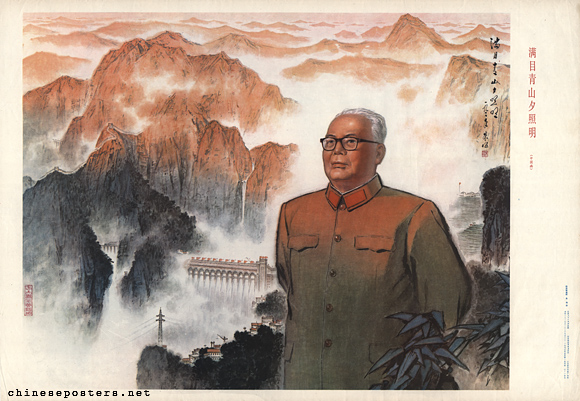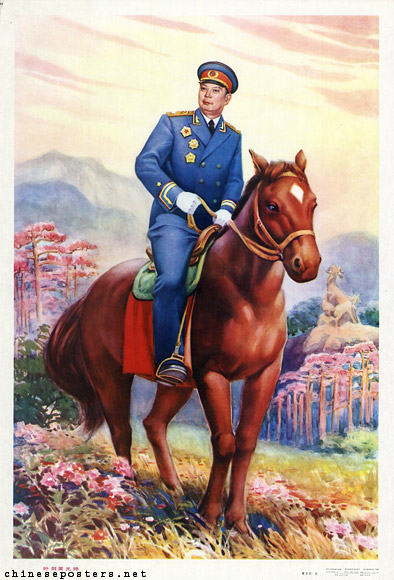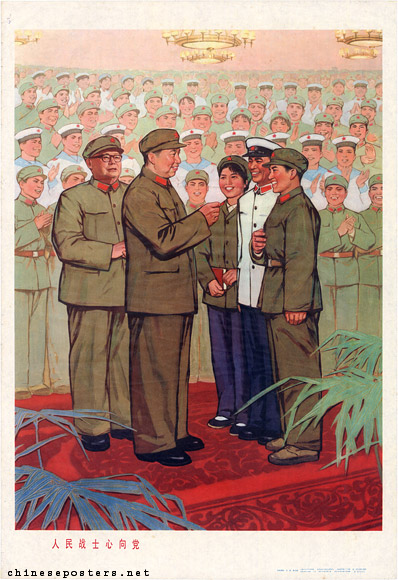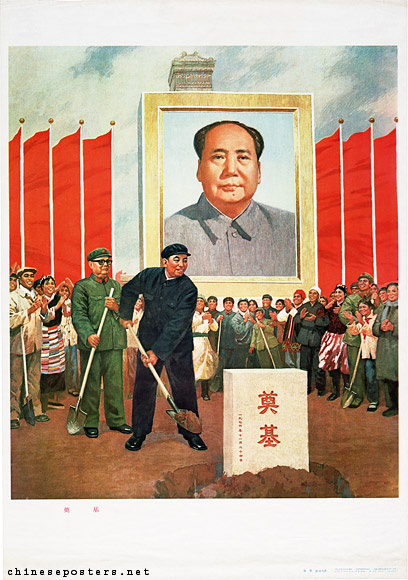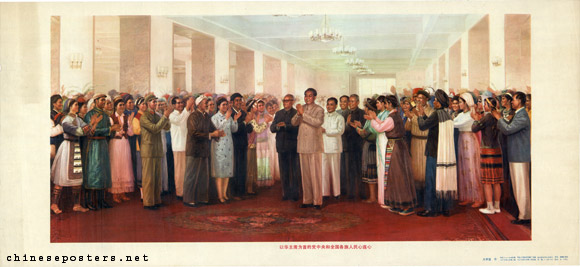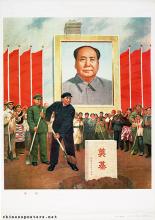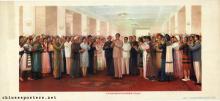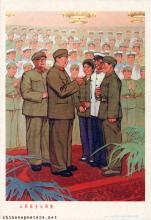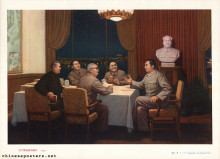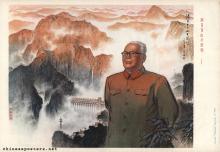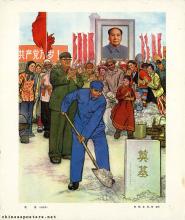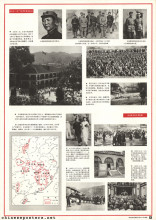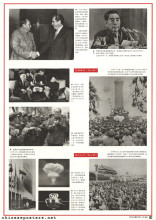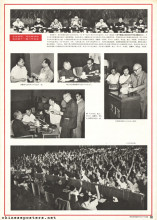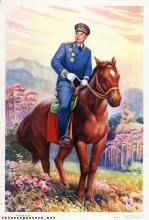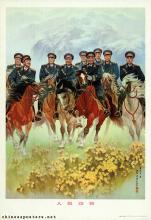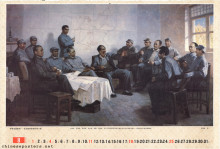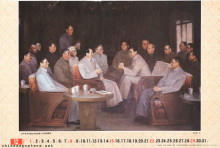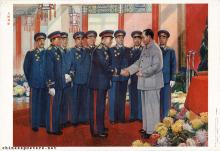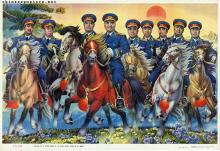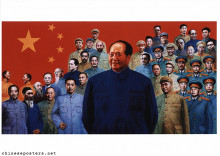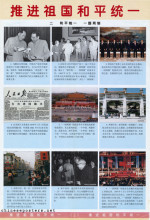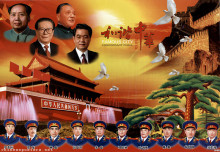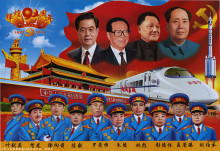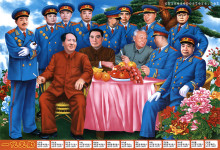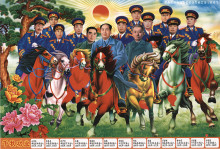On all sides there are blue mountains within the bright glow of the sunset, 1978
Ye Jianying (叶剑英, 1897-1986) was born into a wealthy merchant family in Meixian County, Guangdong Province and spent part of his youth in Singapore and Hanoi. He belonged to the Hakka minority. After graduation from the Yunnan Military Academy in 1919, he joined Sun Yatsen and the Guomindang (GMD), as a result of which he became an instructor at the Whampoa Military Academy. He participated in the failed Nanchang and Guangzhou Uprisings (1927), fled to Hong Kong and subsequently studied military science in Moscow. After his return in 1932, he joined the Jiangxi Soviet. He survived the Long March and became director of the offices that liaised with the GMD after 1936, first in Xi’an, subsequently in Nanjing and finally in Chongqing. In this capacity, he worked together with Zhou Enlai. Until 1968, Ye would be active in various military functions, having been made a marshal in 1955.
Ye’s impressive Party career started in 1945, when he was elected member of the 7th Central Committee, a function that he continued to occupy until his death. Over the years, he was a member of the Secretariat (1966-1969), the Politburo (1966-1986) and the Standing Committee of the Politburo (1973-1985). From 1973-1982, he also served as vice-chairman of the CCP. He became a member of the Standing Committee (1961-1967) and later vice-chairman (1967-1985) of the Military Commission. In other functions he served as mayor of Beijing (1949) and as minister of Defense (1975-1978). Moreover, he was able to build up a power base in Guangdong Province.
The heart of the people’s warriors turns to the Party, 1977
He attempted to defuse the Cultural Revolution in its early stages and was one of the few leaders who survived the movement unharmed, although he was exiled from Beijing in October 1969 because of criticism of the movement. After Mao Zedong’s death, he was the main military force behind Hua Guofeng’s 1976 coup d’etat against Jiang Qing and the Gang of Four.
Two days after the arrest of the Gang, the highest organs of the party and the state decided that a Memorial Hall would be built as a permanent tribute to the founder of the People’s Republic. On 24 November 1976, the foundation stone for the gigantic building, located to the south of the Monument to the People’s Heroes on Tiananmen Square, was put in place. Both Hua and Ye were prominently present at the ceremony, as the poster "Laying the Foundation" shows. In the poster below, entitled "The Central Committee of the Party, with Chairman Hua at its head, unites with the people of all nationalities of the nation" (1978), Ye stands to the left of Hua, and Deng Xiaoping behind Hua.
Hua’s subsequent replacement by Deng in 1977 also bore traces of PLA-interference. Many ‘ordinary’ Chinese subscribe to this view and even today, they do not hesitate to spontaneously lament Hua’s unfair treatment ("betrayal", as some put it more forcefully) by Ye and the other PLA elders. In the early 1980’s, Ye became an opponent of Deng’s more unorthodox reform policies.
Wolfgang Bartke, Who was Who in the People’s Republic of China (München: K.G. Sauer, 1997)
Wolfgang Bartke, Biographical Dictionary and Analysis of China’s Party Leadership 1922-1988 (München: K.G. Sauer, 1990)
Chen Yu (ed.), Zhonghua renmin gongheguo 36 junshijia [36 Strategists of the People’s Republic of China] (Shanghai: Shanghai wenyi chubanshe, 2002) [in Chinese]
Dachang Cong, When Heroes Pass Away - The Invention of a Chinese Communist Pantheon (Lanham: University Press of America, 1997)
Guo Jian, Yongyi Song & Yuan Zhou, Historical Dictionary of the Chinese Cultural Revolution (Lanham: The Scarecrow Press, Inc., 2006)
Liao Yiwen (ed), Tian Lun [Family Love and Friendship] (Tianjin: Tianjin jiaoyu chubanshe, 1995) [in Chinese]
Xu Yan, 80 wei gongchandang rende gushi [The stories of 80 Communist Party personages] (Beijing: Jiefangjun wenyi chubanshe, 2001) [in Chinese]
